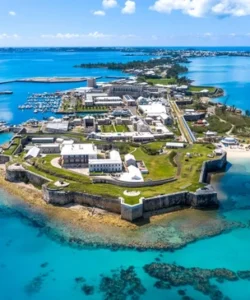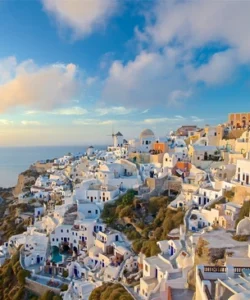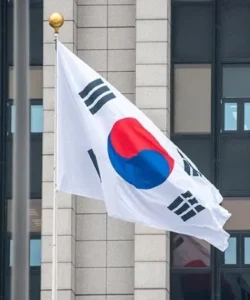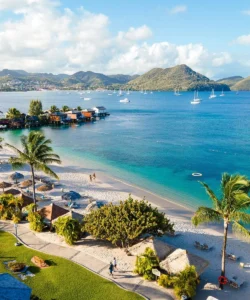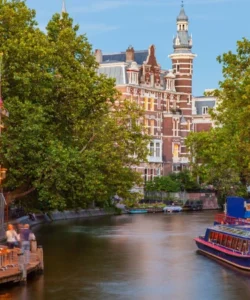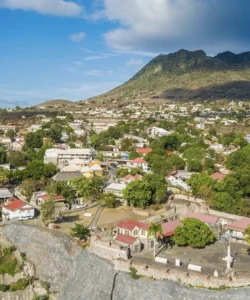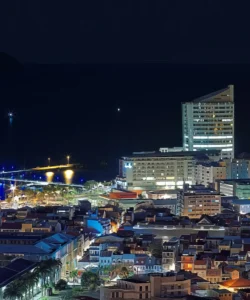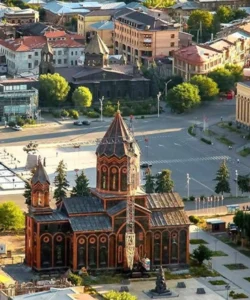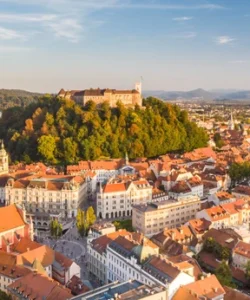Lebanon, a country on the Near-Asian coast of the Mediterranean, is renowned for its rich history, diverse culture, and stunning natural beauty.
Area: Lebanon has a total area of 10,450 km².
Population: As of 2023, Lebanon’s population is approximately 5.77 million.
Language: Arabic is the official language. English and French are also widely spoken.
Currency: The currency of Lebanon is the Lebanese Pound (LBP).
Religion: The population of Lebanon is diverse, with an estimated 69.3% Muslim (Sunni, Shia, Alawites, and Ismailis combined) and 30.7% Christian.
Capital: Beirut is the capital city of Lebanon.
Major Cities: Besides Beirut, other major cities include Tripoli, Jounieh, and Zahlé.
Attractions: Lebanon boasts a wealth of attractions, including historical sites, natural wonders, and vibrant urban centers. Some notable attractions include:
- Jeita Grotto: A stunning limestone cave system.
- Cedars of God: Ancient cedar trees, a symbol of Lebanon.
- Byblos Citadel: A historic Crusader castle in one of the world’s oldest continuously inhabited cities.
- Baatara Gorge Waterfall: A triple natural bridge and waterfall.
- Kadisha Valley (Holy Valley): A UNESCO World Heritage site known for its Christian monasteries.
- National Museum of Beirut: Houses a vast collection of archaeological artifacts.
- Mohammad Al Amin Mosque (Blue Mosque): A prominent landmark in Beirut.
- Our Lady of Lebanon (Harissa): A Marian shrine offering panoramic views.
- Sidon Sea Castle: A Crusader fortress located on an island in Sidon.
- Roman Baths Beirut: Ancient Roman ruins in the heart of Beirut.
Wonders (Natural): Lebanon’s natural wonders include the Cedars of God, Baatara Gorge Waterfall, Jeita Grotto, and the Kadisha Valley.
Architecture: Traditional Lebanese architecture often features elements like the “Iwan house” and the “Three arches house,” reflecting a blend of influences over centuries. Modern architecture in cities like Beirut also showcases a cosmopolitan flair.
Roads: Lebanon’s road network, comprising around 21,705 km, suffers from inadequate maintenance and low traffic capacity, leading to congestion and poor road safety conditions. However, the government has invested in improving road infrastructure.
Hotels: Lebanon offers a range of accommodation options, from luxury hotels to boutique establishments. In Beirut, notable hotels include Mövenpick Hotel Beirut, Kempinski Summerland Hotel & Resort Beirut, and InterContinental Phoenicia Beirut. Lebanese hospitality is a deeply ingrained cultural tradition, valuing guests as blessings.
Restaurants & Cuisine: Lebanese cuisine is renowned globally for its abundance of fresh ingredients, including whole grains, fruits, vegetables, and seafood. Poultry is preferred over red meat, with lamb and goat being common. Dishes are often seasoned with garlic, olive oil, salt, and lemon juice, and chickpeas and parsley are staples.
- Popular dishes: Hummus, baba ghanoush, tabbouleh, fattoush, falafel, shawarma, kibbeh, and various mezze (small dishes).
- Popular Restaurants in Beirut: Em Sherif, Liza Beirut, Al Halabi Restaurant, and Baron. The country also boasts an ancient wine-producing tradition, particularly in the Beqaa Valley.
Annual Travel: Lebanon recorded 1.47 million tourists in 2022. Tourist arrivals can fluctuate due to regional and domestic factors.

